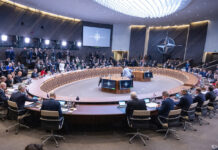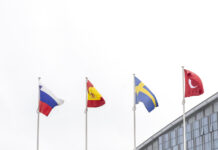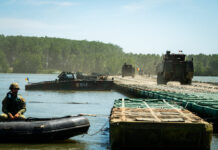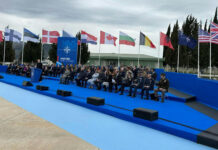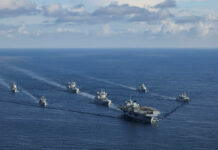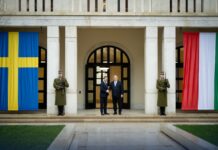Finland officially became the 31st member of NATO on 4 April 2023 in a ceremony that immediately preceded a two-day meeting of the alliance’s foreign ministers in Brussels.
The ceremony, in which the Finnish flag was raised for the first time outside Nato’s Brussels HQ with Finnish President Sauli Niinisto and his country’s defence and foreign ministers, Antti Kaikkonen and Pekka Haavisto respectively, looking on, was appropriately held on NATO Day, which is commemorated in capitals across the alliance every year on 4 April.
Speaking in advance of the accession ceremony on 4 April, NATO Secretary General Jens Stoltenberg declared, “On this very day, in 1949, the Washington Treaty, NATO’s founding treaty, was signed in Washington and it is hard to imagine a better way of celebrating our anniversary than to have Finland becoming a full member of the Alliance.”
Finland’s accession to NATO more than doubles the length of border that Russia now has with the alliance, with Finland’s 1,340 km border with Russia now added to that of Estonia (294 km), Latvia (214 km) and Norway (198 km), along with Poland and Latvia’s borders with the Russia exclave of Kaliningrad (232 km and 275 km respectively).
This is effectively the opposite of what Russian President Vladimir Putin was trying to achieve when he ordered the Russian invasion of Ukraine on 24 February 2022: an outcome summarised by Stoltenberg on the eve of Finland’s accession when he stated, “President Putin went to war against Ukraine with a clear aim to get less NATO. He’s getting the exact opposite.”
Putin’s miscalculation was that, in attempting to create a buffer zone against NATO by thwarting any chance of Ukraine joining the alliance, Russia’s bloody belligerence would, in fact, simply convince Finland and Sweden that adhering to neutrality was no longer an option. Finland and Hungary simultaneously handed in official letters of application to join NATO on 18 May 2022, less than three months after Russia invaded Ukraine.
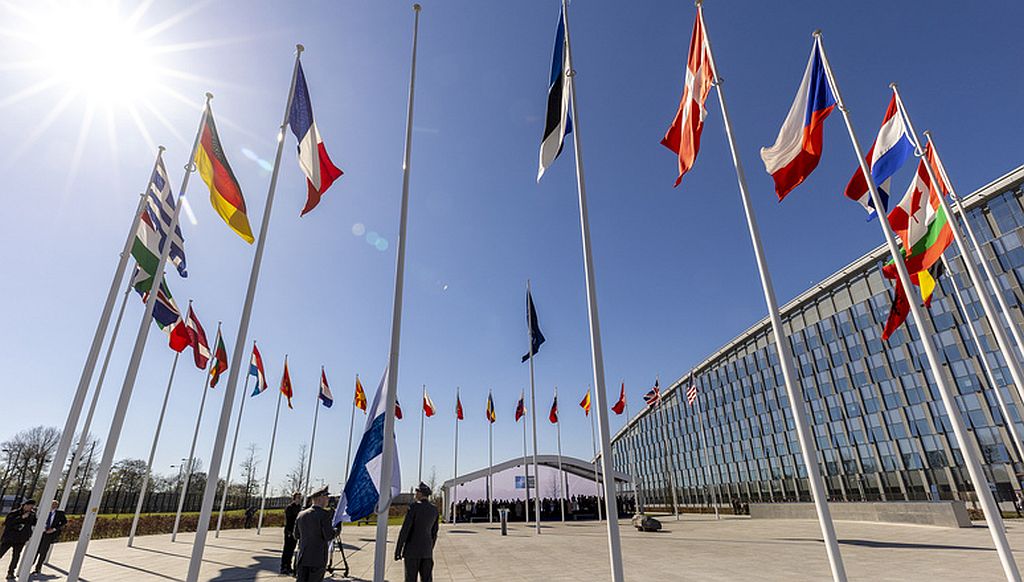
While Sweden’s accession to NATO remains held up by objections from Turkey’s President Recep Tayyip Erdoğan over allegations that Sweden is sheltering dissidents that Turkey considers terrorists, Erdoğan waived any similar concerns in relation to Finland at a press conference in Istanbul on 17 March 2023.
Moscow’s response to Finland’s accession to the alliance was predictably hostile, with Kremlin spokesman Dmitry Peskov telling journalists that it was an “aggravation of the situation” that will force Russia to “take countermeasures to ensure our own security, both tactically and strategically”. Peskov said Russia would “keep monitoring the situation and the deployment of NATO infrastructure and weapons on the territory of Finland”, adding that “response measures will be taken accordingly”.
Stoltenberg told reporters earlier that NATO troops would only be stationed in Finland with the country’s consent.
Peter Felstead





